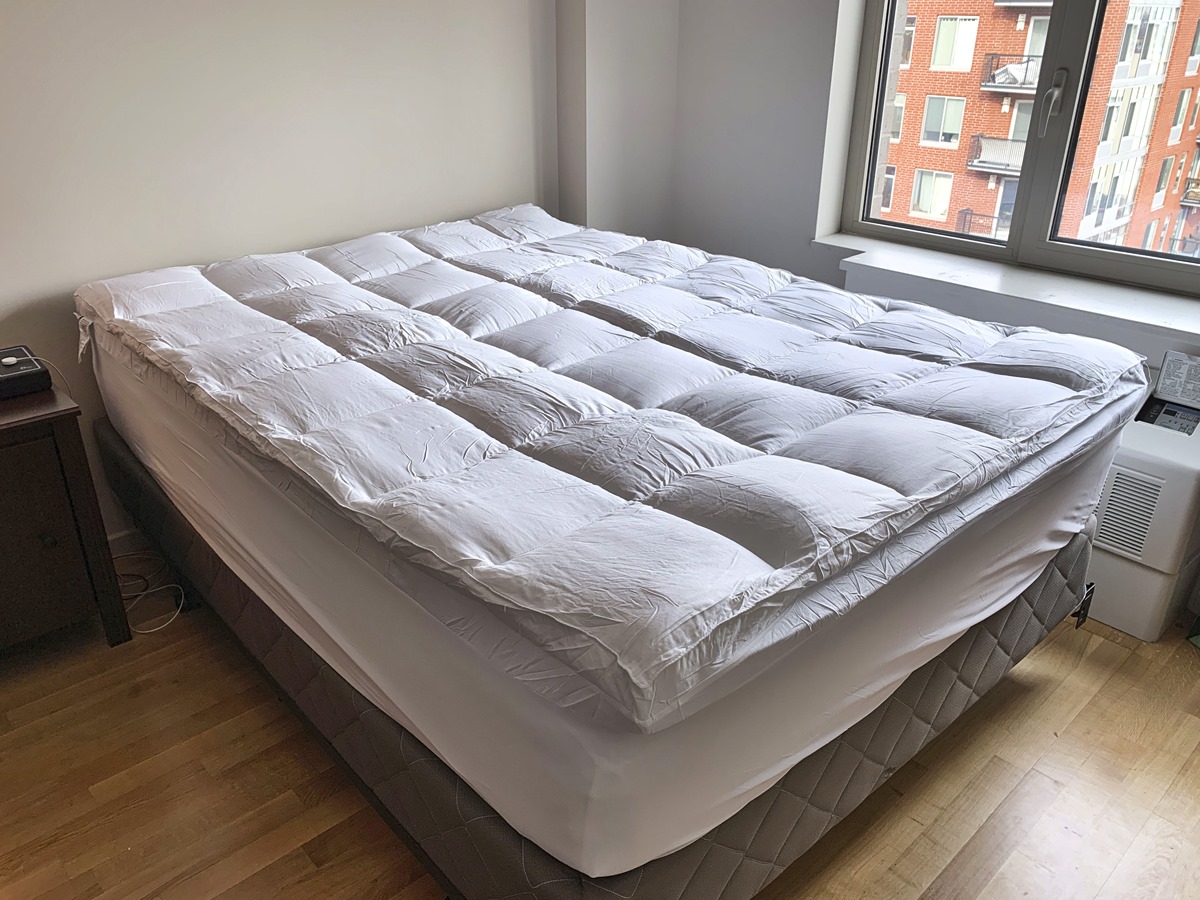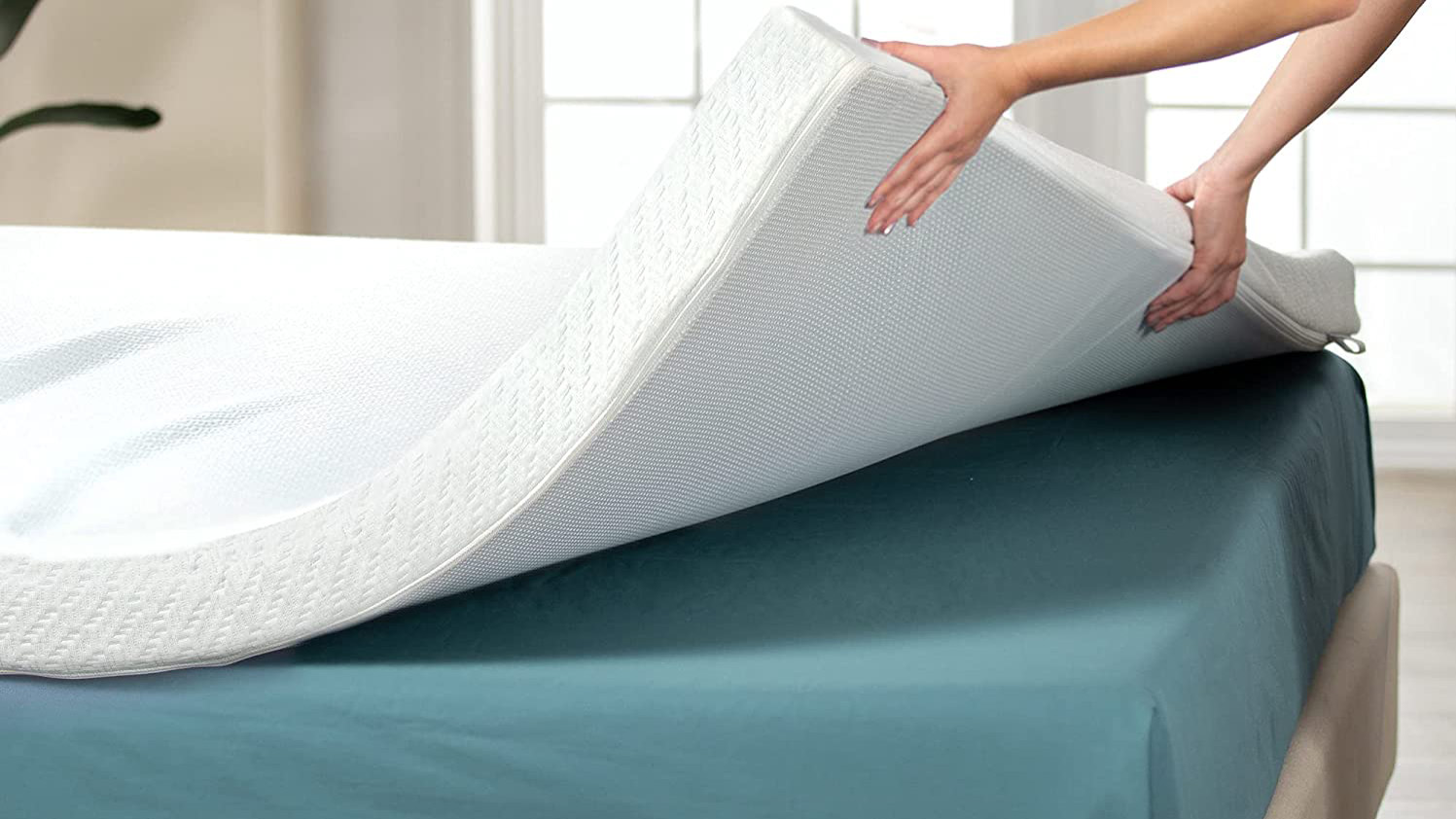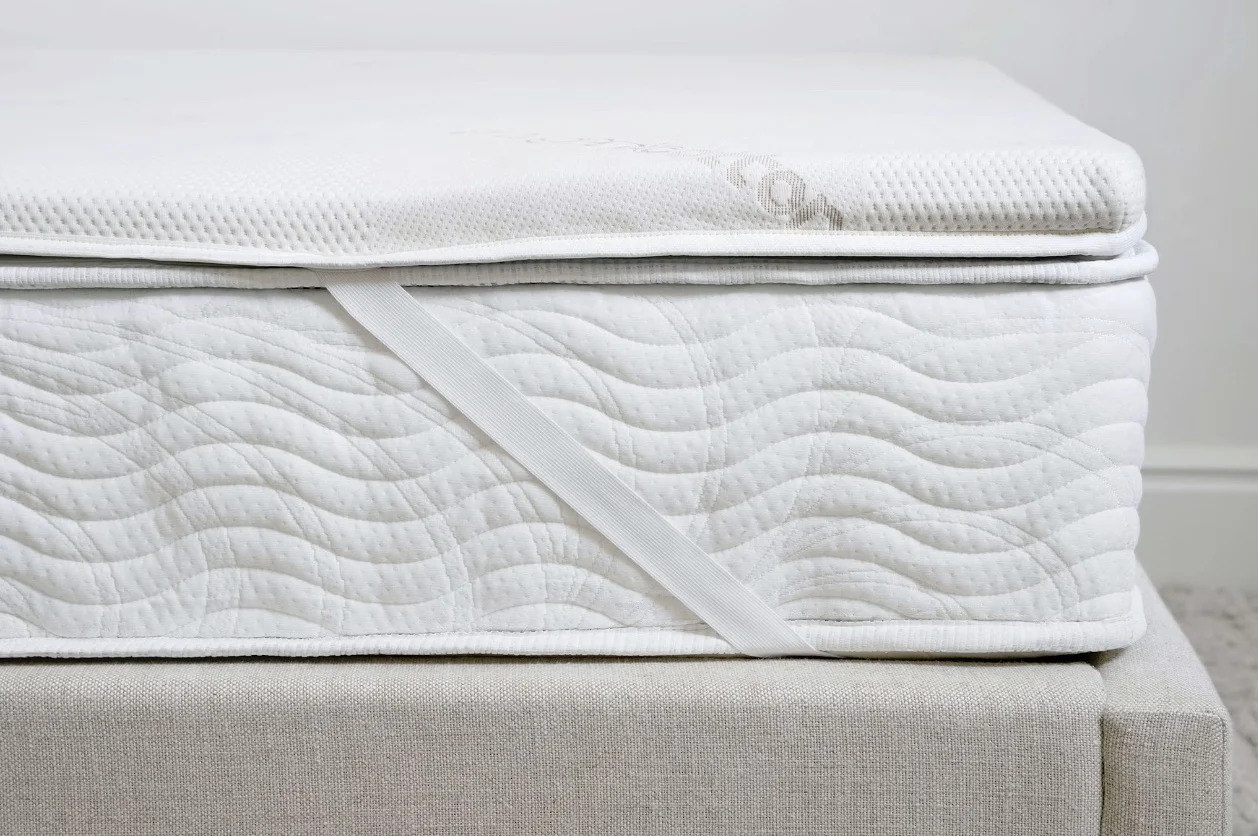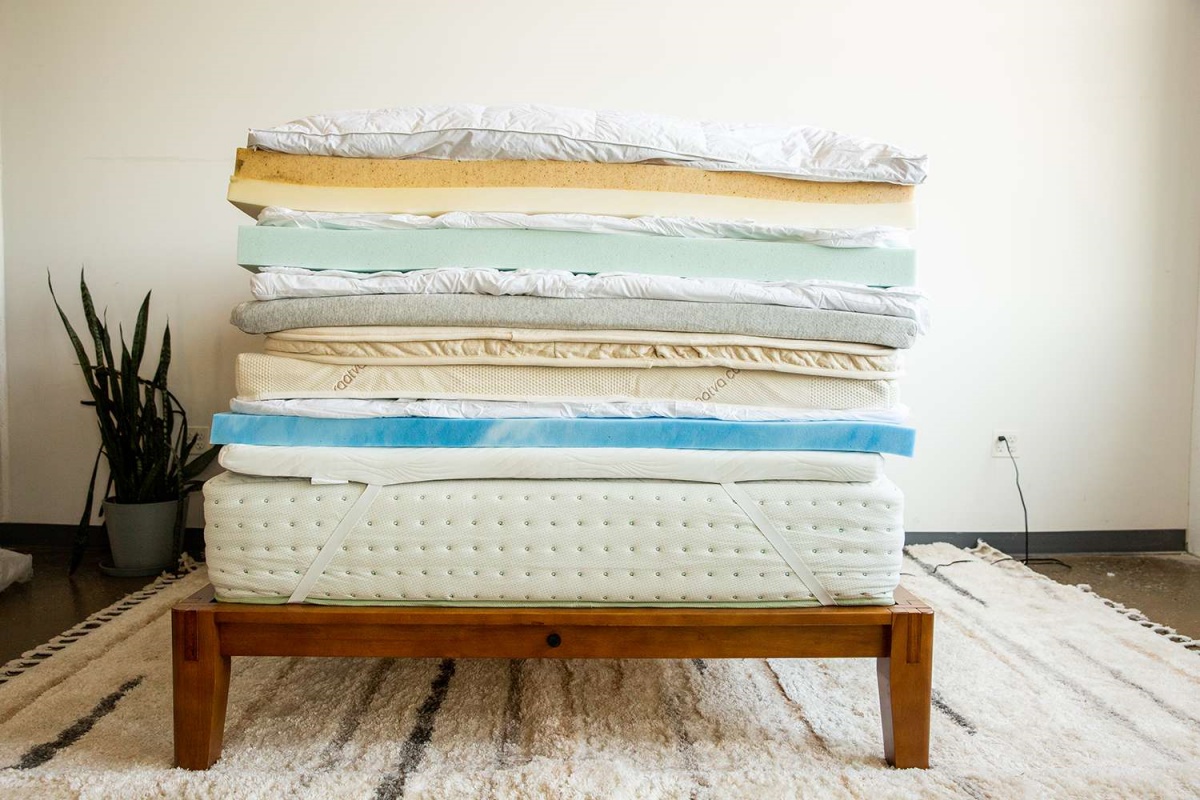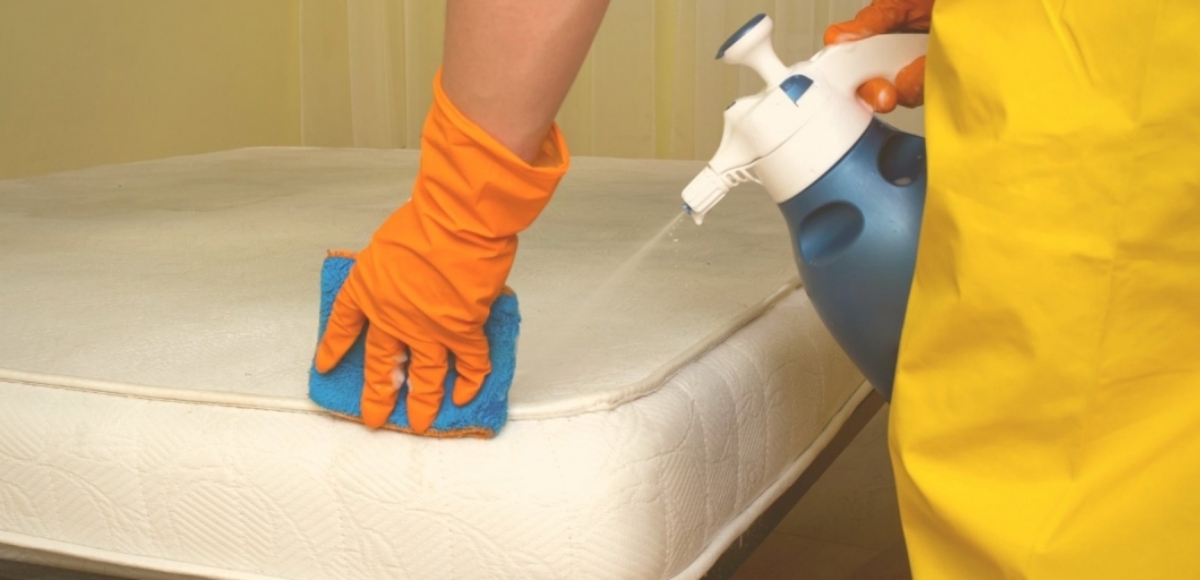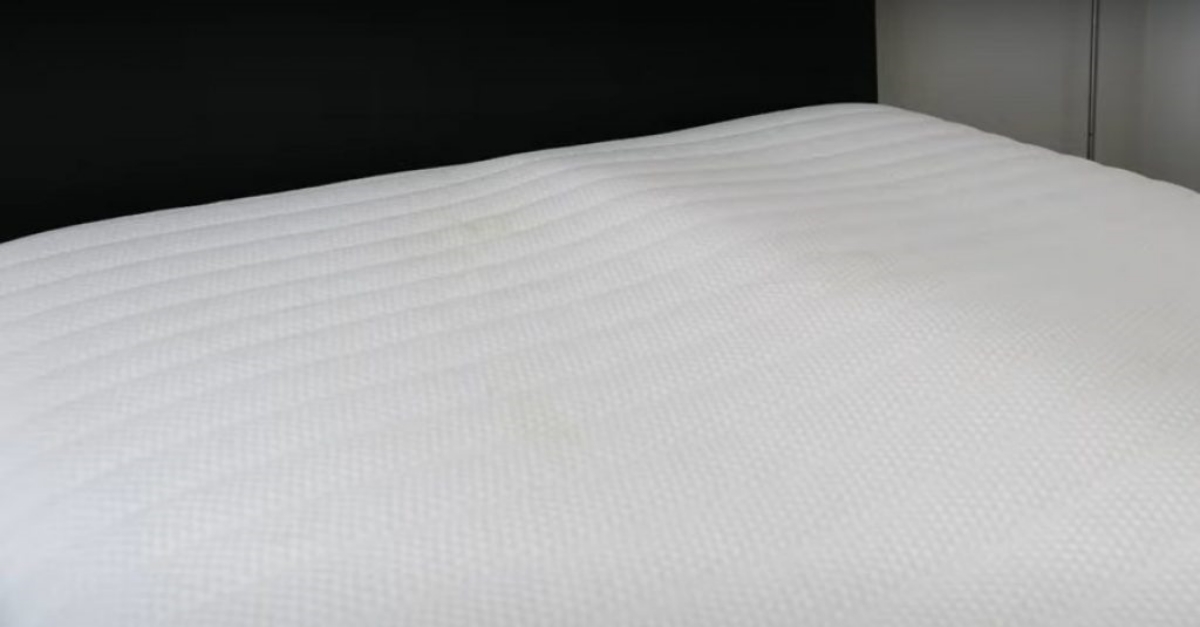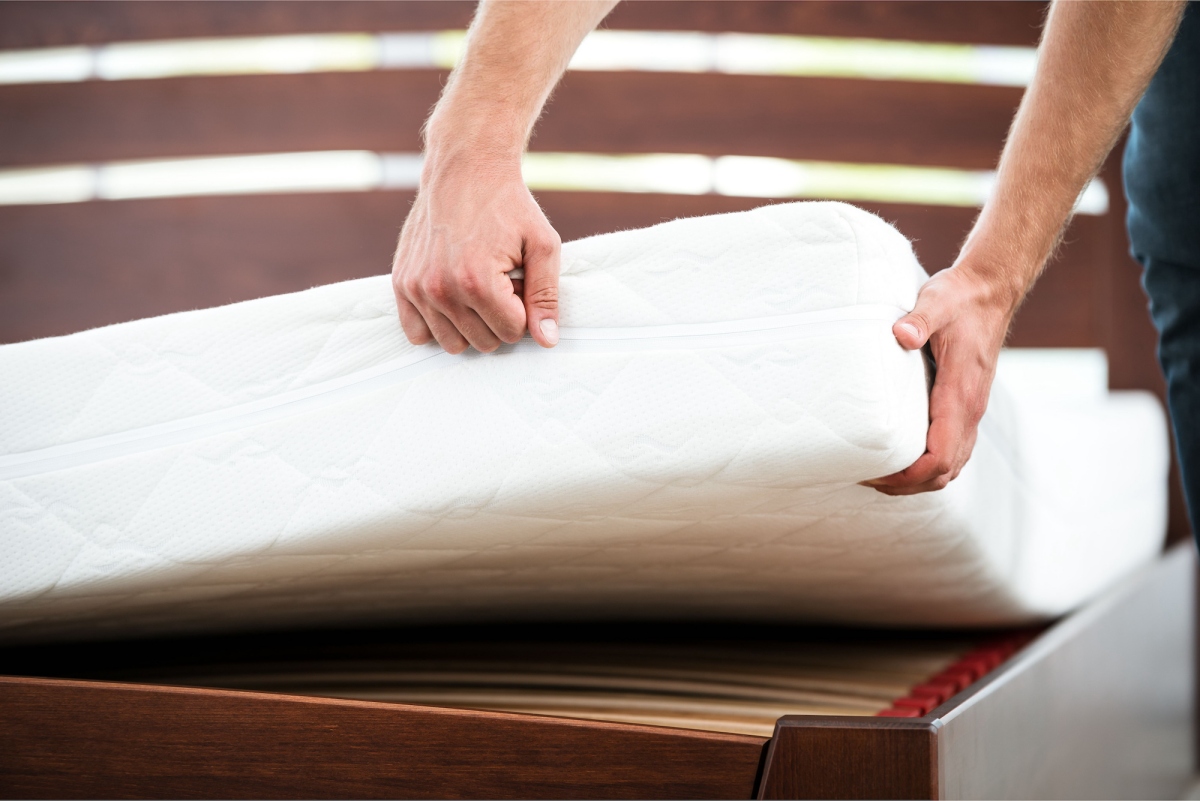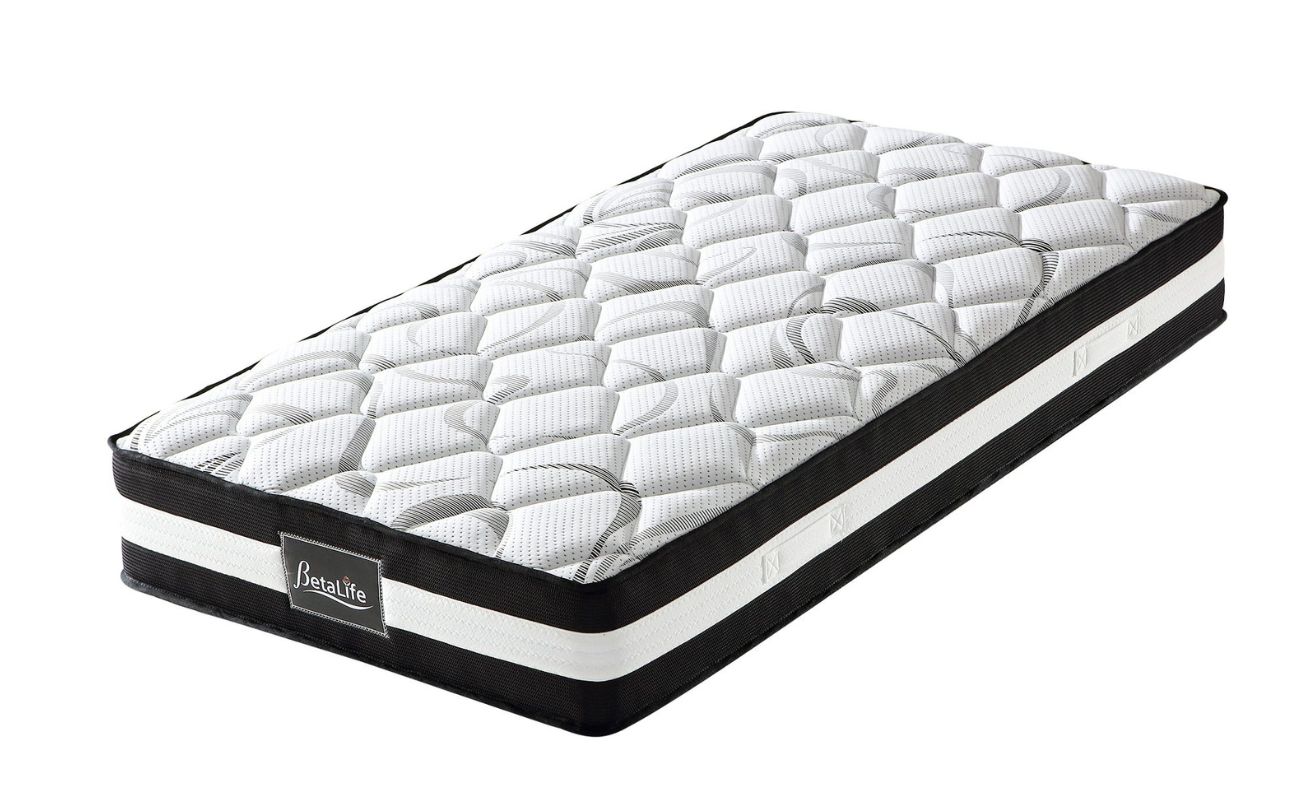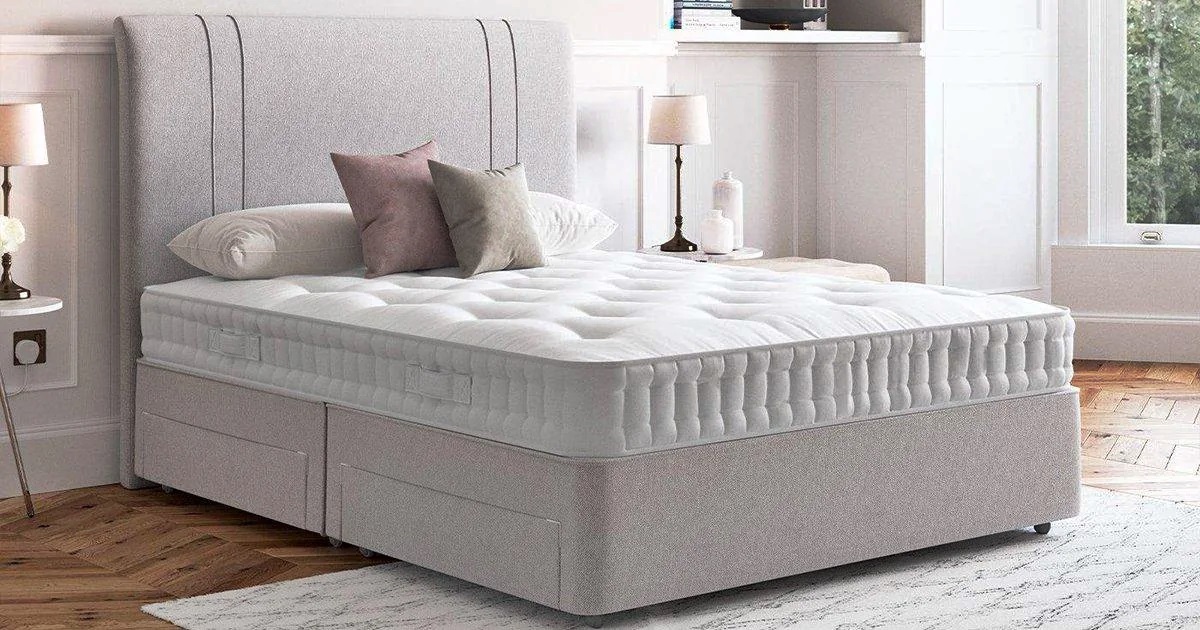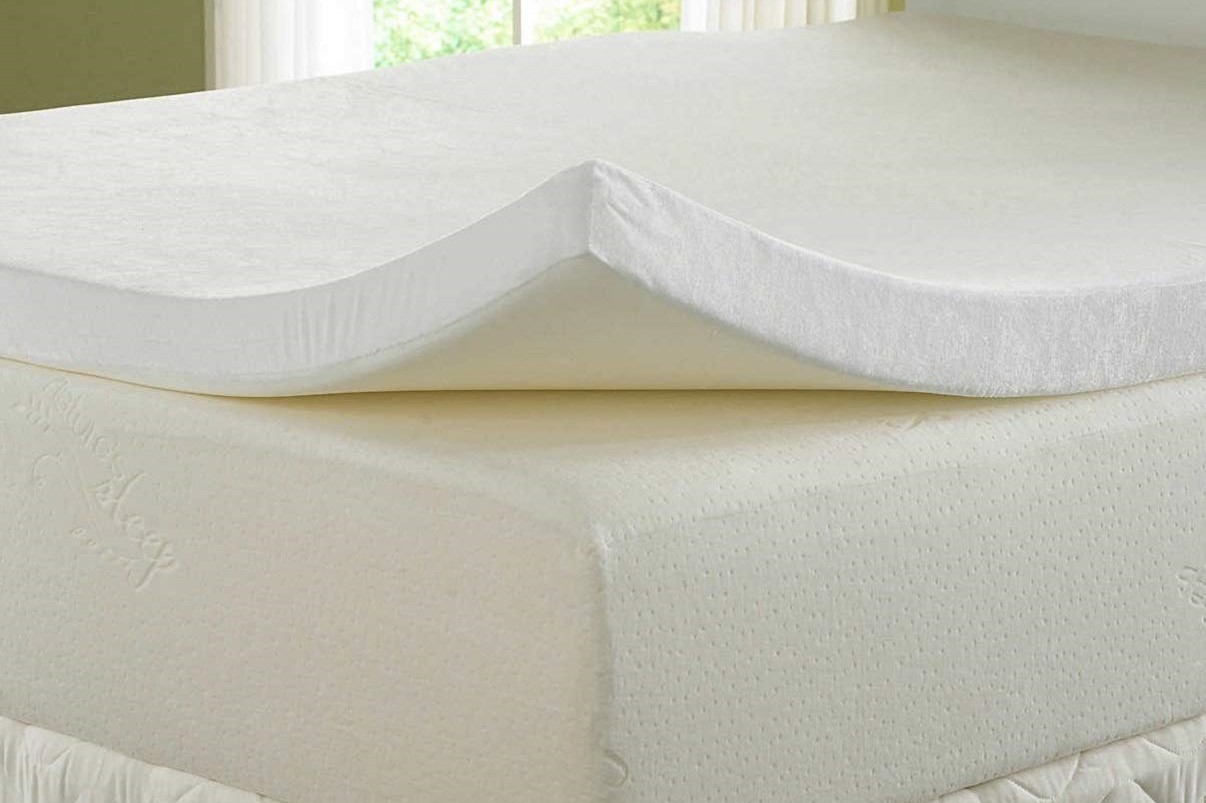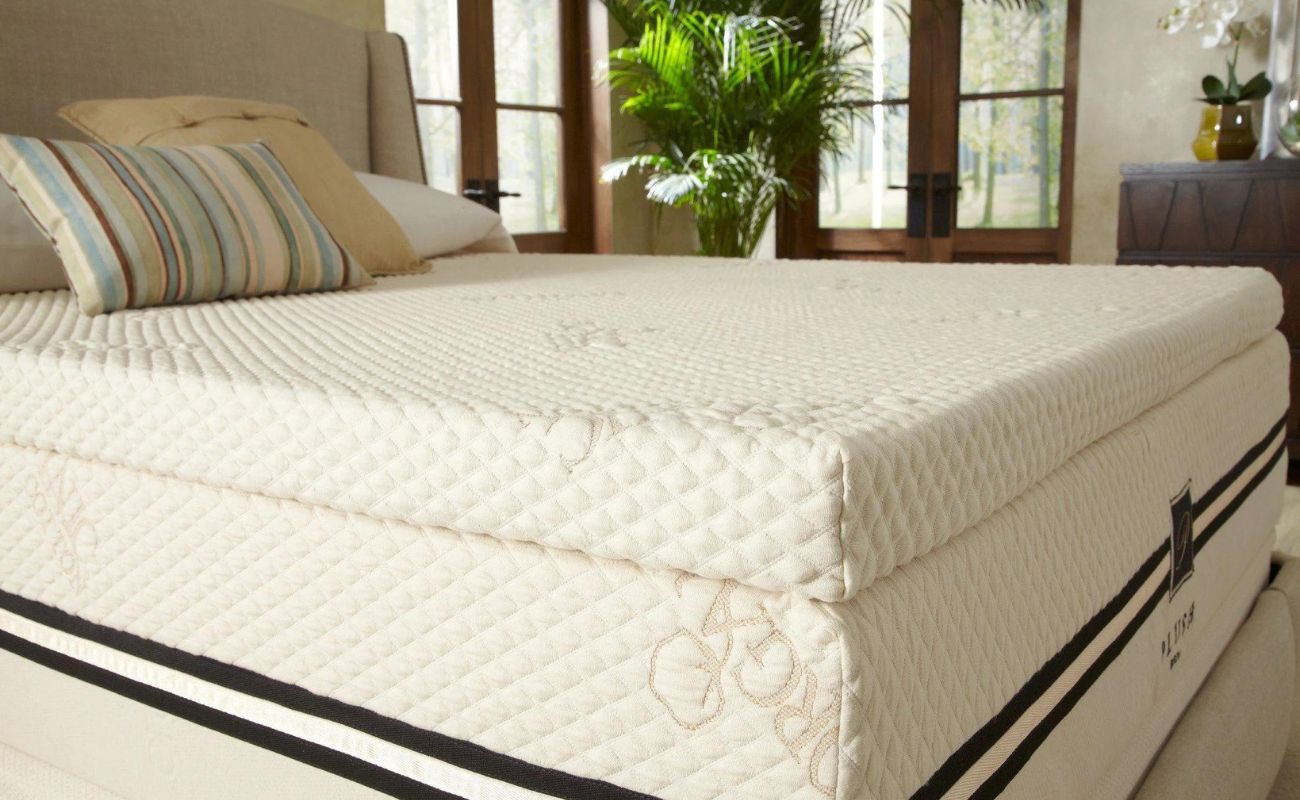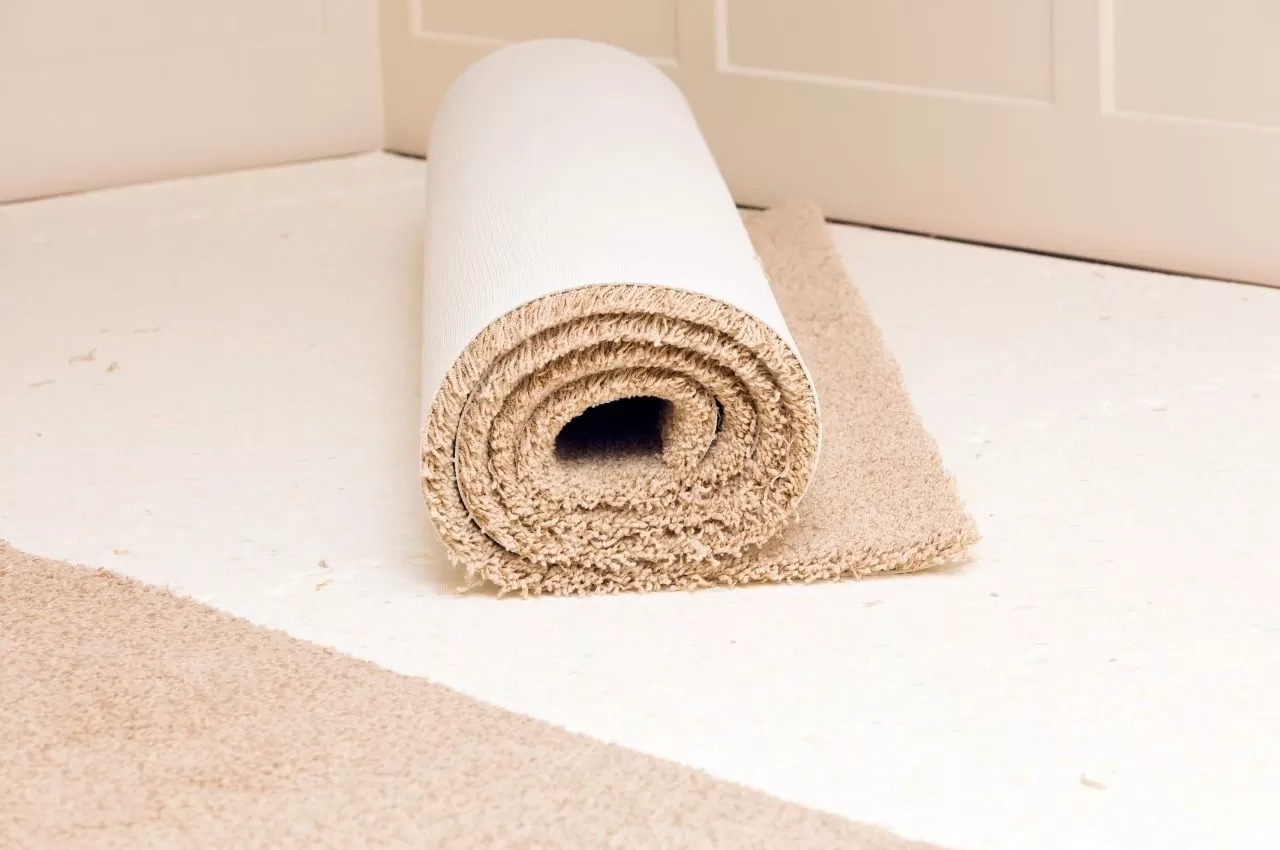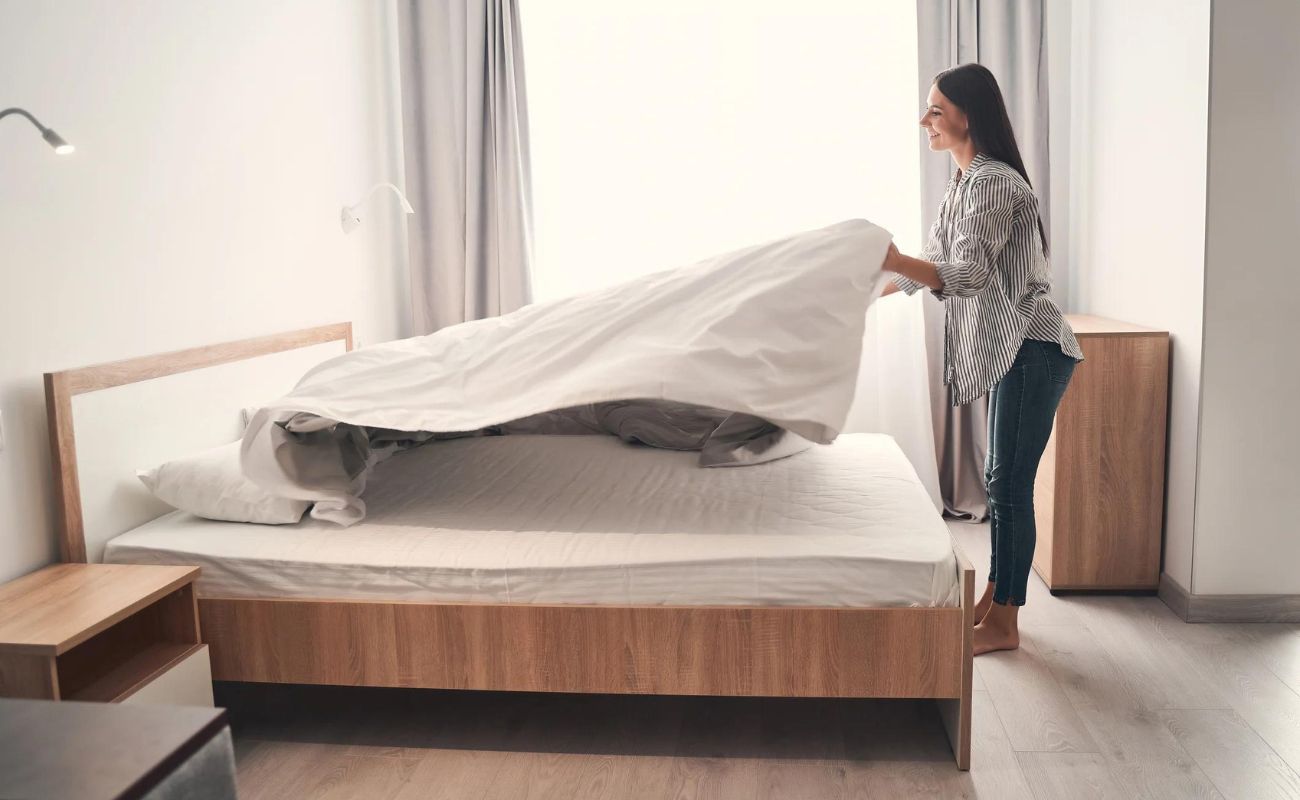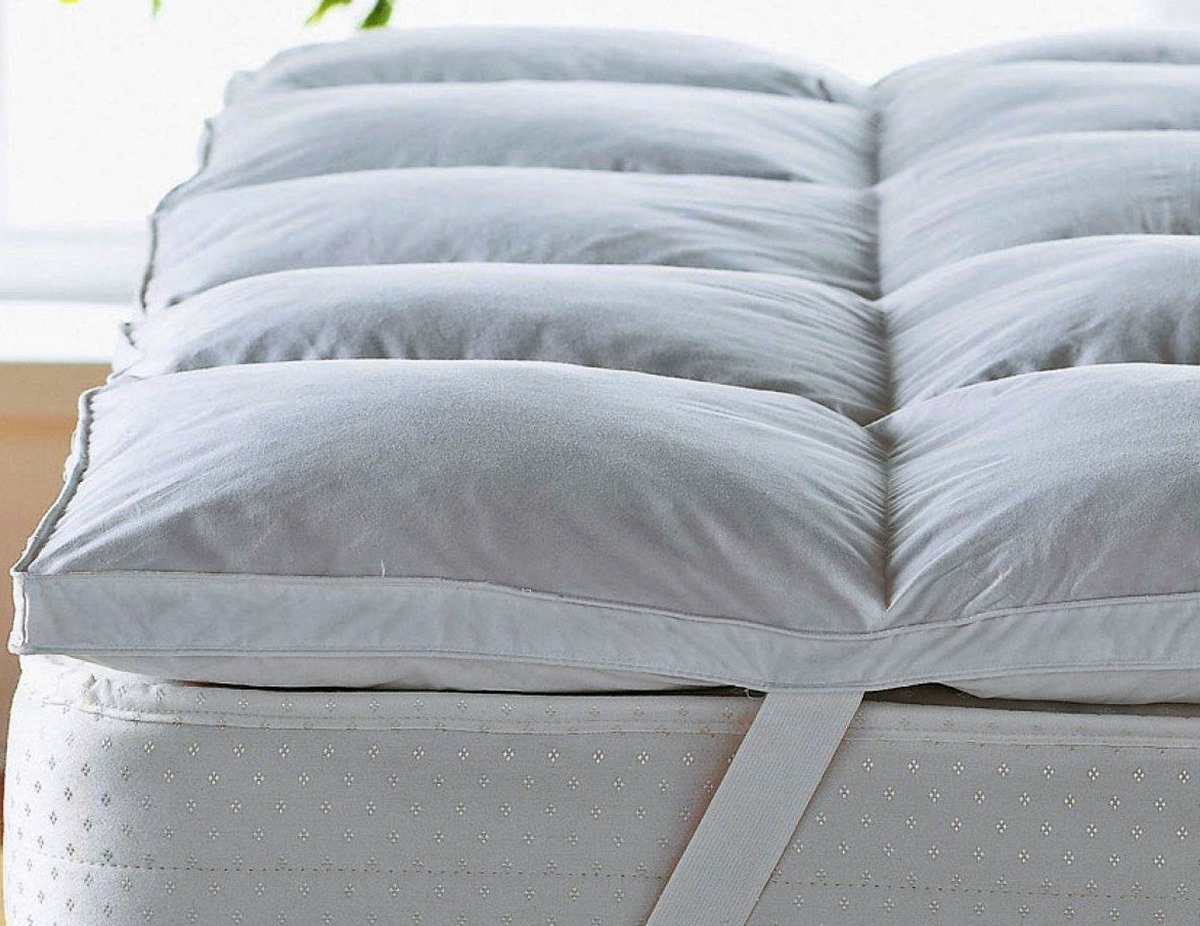Home>Furniture>Bedroom Furniture>What Thickness Mattress Topper Should I Get
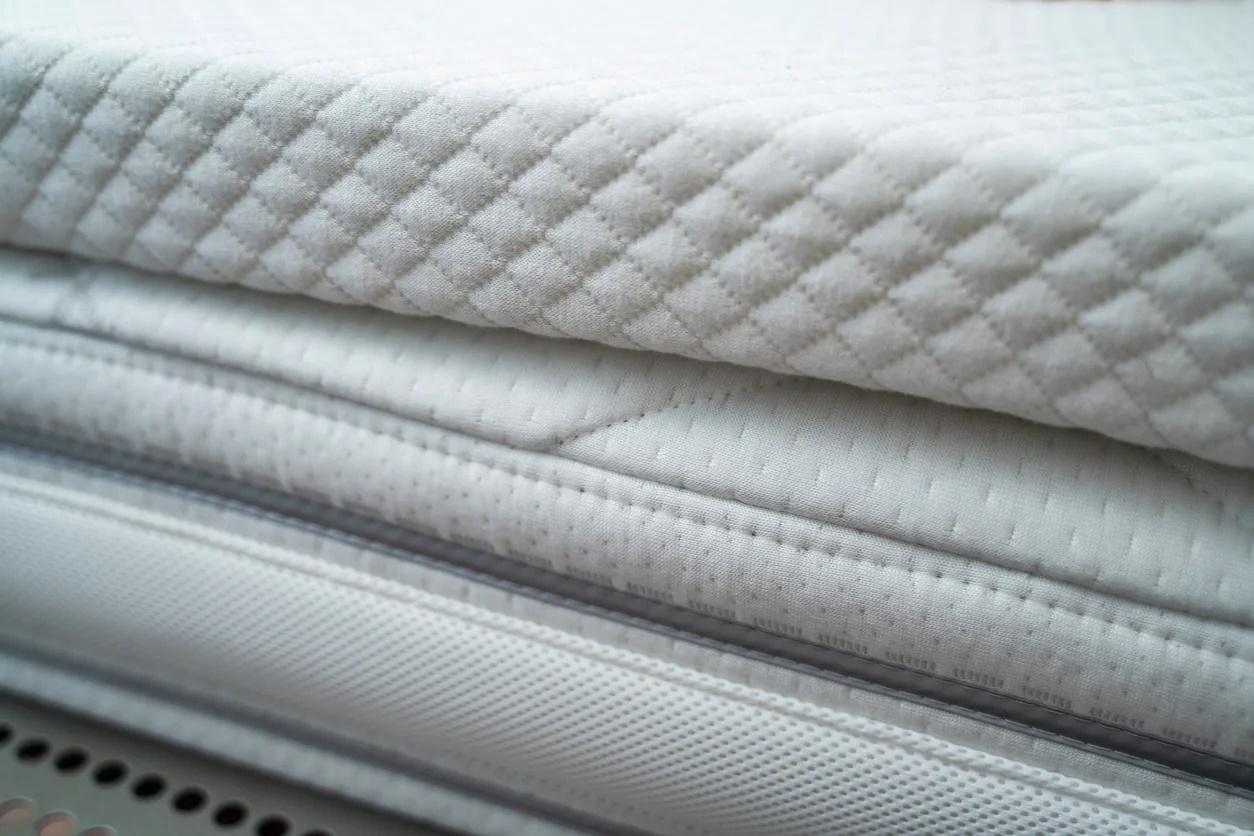

Bedroom Furniture
What Thickness Mattress Topper Should I Get
Modified: January 4, 2024
Get the ultimate comfort for your bedroom with the perfect thickness mattress topper. Discover the ideal choice for your bedroom furniture.
(Many of the links in this article redirect to a specific reviewed product. Your purchase of these products through affiliate links helps to generate commission for Storables.com, at no extra cost. Learn more)
Introduction
When it comes to getting a good night’s sleep, the right mattress topper can make all the difference. But with the multitude of options available, it can be overwhelming to choose the right mattress topper for your needs. One crucial factor to consider is the thickness of the mattress topper.
The thickness of a mattress topper refers to its height or depth. It can vary from thin to ultra-thick, with each option offering different benefits and considerations. In this article, we’ll explore the factors to consider when choosing a mattress topper thickness, the various types of mattress toppers available, and the advantages of both thicker and thinner mattress toppers. By the end, you’ll have a better understanding of what thickness mattress topper is right for you.
Key Takeaways:
- Thicker mattress toppers offer enhanced comfort, support, and can revive an aging mattress. They provide a plush, luxurious feel and extra cushioning, ideal for those seeking a softer sleeping surface.
- Thinner mattress toppers provide a subtle layer of cushioning, maintain the firmness of the underlying mattress, and offer better temperature regulation. They are convenient, cost-effective, and suitable for individuals satisfied with their existing mattress comfort.
Factors to Consider
Before diving into the specific thickness of a mattress topper, it’s important to consider several factors that can influence your decision. These factors can help you determine the ideal thickness that aligns with your needs and preferences. Here are some key factors to consider:
- Sleeping Position: Your preferred sleeping position plays a significant role in determining the appropriate mattress topper thickness. For example, side sleepers may benefit from a thicker topper to provide extra cushioning and pressure relief for their shoulders and hips, while back sleepers may find a medium thickness topper more comfortable for maintaining proper spinal alignment.
- Body Weight: Your body weight can impact the level of support and comfort you require from a mattress topper. Heavier individuals might prefer a thicker topper for better support and to prevent sinking too much into the mattress, while lighter individuals may find a thinner topper sufficient for added comfort.
- Existing Mattress Condition: If your mattress is starting to sag or lose its support, a thicker mattress topper can help revive its plushness and extend its lifespan. Alternatively, if your mattress is still in good condition but you want to add a layer of softness or firmness, a thinner topper may be more suitable.
- Allergies or Sensitivities: If you have allergies or sensitivities to certain materials, it’s essential to consider the composition of the mattress topper. Thicker toppers often have more material, which could potentially exacerbate allergic reactions. Thinner toppers, on the other hand, may provide a more hypoallergenic option.
- Climate and Temperature Regulation: Depending on the climate or personal sleep preferences, you may want to consider how the mattress topper affects temperature regulation. Thicker toppers can retain more heat, which may be beneficial in colder climates, while thinner toppers offer better breathability and cooling properties.
By taking these factors into account, you’ll be better equipped to make an informed decision about the thickness of your mattress topper.
Types of Mattress Toppers
Before we delve into the thickness considerations, let’s explore the different types of mattress toppers available in the market. Each type offers unique benefits and features that cater to different needs and preferences.
- Memory Foam Toppers: Memory foam toppers are known for their contouring and pressure-relieving properties. They conform to your body shape, providing excellent support and alleviating discomfort. Memory foam toppers come in various thicknesses, from 2 to 4 inches, making them a versatile choice for different sleepers.
- Late x Toppers: Latex toppers are made from natural or synthetic latex material. They offer excellent support, responsiveness, and durability. Latex toppers come in different thicknesses, typically ranging from 1 to 4 inches, allowing you to choose the level of cushioning and support you prefer.
- Down Feather Toppers: Down feather toppers are known for their luxurious softness and comfort. Made from a combination of down feathers and other materials, they provide a plush sleeping surface. Down feather toppers usually come in thinner sizes, around 2 to 3 inches, offering a gentle layer of padding.
- Wool Toppers: Wool toppers are ideal for temperature regulation, as they naturally wick away moisture and help maintain a comfortable sleep environment. They provide a soft and cushioning surface. Wool toppers are available in varying thicknesses, depending on the desired level of comfort and support.
- Fiberfill Toppers: Fiberfill toppers are made from synthetic fibers and offer a budget-friendly option. They provide a soft and comfortable sleeping surface, and they are available in various thickness options to suit different preferences.
Remember that the material of the mattress topper has a significant impact on its performance and feel. Consider your specific needs, such as pressure relief, support, and temperature regulation, when choosing the type of mattress topper that works best for you.
Choosing the Right Thickness
Now that you are familiar with the factors to consider and the types of mattress toppers available, let’s dive into the process of choosing the right thickness for your mattress topper. Keep in mind that selecting the ideal thickness is a subjective decision influenced by personal preferences, sleeping style, and comfort needs.
The range of mattress topper thicknesses typically varies from 1 to 4 inches. Here are some guidelines to help you make an informed decision:
- Thin (1 to 2 inches): Thin mattress toppers are best suited for individuals who want minimal alteration to the feel of their existing mattress. They provide a subtle layer of cushioning and can improve overall comfort. Thin toppers are also beneficial for sleepers who prefer a firmer sleeping surface or have a mattress that is still in good condition.
- Medium (2 to 3 inches): Medium thickness toppers strike a balance between comfort and support. They offer a noticeable layer of cushioning without dramatically altering the feel of the mattress. Medium toppers are versatile and suitable for a wide range of sleepers, providing pressure relief and added plushness.
- Thick (3 to 4 inches): Thick mattress toppers provide maximum cushioning and can significantly transform the feel of your mattress. They are particularly suitable for sleepers who need extra support, have pressure points, or prefer a softer sleeping surface. Thick toppers offer enhanced comfort and can revive older mattresses or address underlying comfort issues.
It’s important to note that thicker toppers may require deeper fitted sheets to accommodate the additional height. Also, keep in mind that a thicker topper may retain more heat, which could affect temperature regulation, especially for individuals who are prone to sleeping hot.
Ultimately, the ideal thickness of your mattress topper depends on factors such as your body weight, preferred sleeping position, desired level of support and cushioning, and any existing mattress issues. Consider these factors and choose a thickness that aligns with your needs for a restful and rejuvenating night’s sleep.
When choosing a mattress topper, consider your comfort preferences and any existing issues with your current mattress. A 2-3 inch topper is a good starting point for most people, providing a balance of comfort and support.
Benefits of a Thicker Mattress Topper
Opting for a thicker mattress topper can provide numerous benefits, particularly if you desire extra cushioning and support. Here are some advantages of choosing a thicker mattress topper:
- Enhanced Comfort: Thicker toppers offer a plush, luxurious feel that can greatly enhance the overall comfort of your mattress. The additional padding can provide an extra layer of coziness and help alleviate pressure points, resulting in a more relaxing and restorative sleep experience.
- Improved Support: Thicker toppers offer increased support, making them an excellent choice for individuals who require extra cushioning for their joints, such as those with arthritis or chronic pain. They can help distribute body weight more evenly, providing better spinal alignment and reducing the risk of discomfort or stiffness.
- Revived Aging Mattress: If your mattress is showing signs of wear and sagging, a thicker topper can provide a new lease of life. By adding a substantial layer of padding, a thicker topper can help restore the comfort and support that may have diminished over time, making your bed feel like new again.
- Customizable Comfort: Thicker mattress toppers can be an ideal choice for sleepers who prefer a softer sleeping surface. The added cushioning allows for a more customized comfort level, allowing you to sink slightly into the topper while still providing adequate support.
- Additional Insulation: Thicker mattress toppers can provide insulation, making them beneficial in colder climates or during the winter months. The extra layers trap heat and help to retain body warmth, resulting in a cozy and cozy sleeping environment.
While thicker mattress toppers offer various benefits, it’s important to consider potential drawbacks as well. Thicker toppers may be more expensive, require deeper-fitted sheets, and have a higher tendency to retain body heat. It’s crucial to weigh the pros and cons and consider your personal preferences and needs before making a decision.
At the end of the day, a thicker topper can be an excellent investment if you’re looking to enhance the comfort and support of your mattress, revive an aging bed, or prefer a softer sleeping surface. It’s all about finding the right balance of thickness and comfort to create your ideal sleep experience.
Read more: How Thick Should A Bassinet Mattress Be
Benefits of a Thinner Mattress Topper
While thicker mattress toppers offer their unique advantages, thinner mattress toppers have their own set of benefits that may be better suited for certain individuals. Here are some advantages of choosing a thinner mattress topper:
- Minimal Alteration to Mattress Feel: Thinner mattress toppers provide a subtle layer of cushioning without significantly altering the feel of the underlying mattress. If you’re generally satisfied with the comfort level of your existing mattress but want a slight boost in softness or support, a thinner topper can be an ideal choice.
- Easy to Maneuver and Maintain: Thinner toppers are generally lighter and easier to handle compared to their thicker counterparts. They’re more convenient when it comes to flipping, rotating, or cleaning the mattress. Additionally, thinner toppers are often more affordable and easier to store if needed.
- Better Temperature Regulation: Thicker toppers tend to retain more heat, which can be an issue for individuals who are prone to sleeping hot or live in warmer climates. Thinner toppers, on the other hand, offer better breathability and allow for improved airflow, helping to regulate body temperature and promote a cooler sleep environment.
- On-the-Firm Side: Some sleepers prefer a firmer sleeping surface for optimal support and spinal alignment. Thinner toppers offer a more minimal cushioning effect, ensuring that you maintain a firmer feel while still benefiting from a slight layer of added comfort.
- Hypoallergenic Options: Thinner toppers often have fewer materials and less volume, which can make them a more hypoallergenic option for individuals with allergies or sensitivities. They may provide a cleaner and less prone-to-dust mattress surface, reducing the risk of allergic reactions.
Keep in mind that thinner mattress toppers may not provide as much pressure relief or softness as thicker options. It’s important to consider your individual needs and preferences when deciding on the thickness of your mattress topper. If you’re already satisfied with the comfort of your mattress and simply need a slight enhancement, a thinner topper can be a practical and cost-effective solution.
Ultimately, the benefits of a thinner mattress topper lie in their ability to provide a subtle layer of cushioning and improved breathability while maintaining the integrity and feel of your existing mattress.
Personal Preferences and Sleeping Style
Choosing the right thickness for your mattress topper is highly dependent on your personal preferences and sleeping style. These factors play a crucial role in determining the level of comfort and support you require for a restful night’s sleep. Here’s how personal preferences and sleeping style can influence your decision:
- Preferred Firmness: Your preference for a softer or firmer sleeping surface is an essential consideration when selecting the thickness of your mattress topper. Thicker toppers tend to provide a plusher feel, while thinner toppers maintain the firmness of the underlying mattress. Consider whether you enjoy sinking into your bed or prefer a more supportive surface.
- Sleeping Position: Your sleeping position can significantly impact the amount of cushioning and support you need. For side sleepers, thicker toppers can help alleviate pressure points and provide better joint support. Back sleepers may find a medium thickness topper more suitable for spinal alignment. Stomach sleepers typically benefit from a thinner topper to maintain a flatter sleeping surface and prevent strain on the back.
- Body Weight: Your body weight can affect the amount of sinkage and support you require. Heavier individuals may find thicker toppers more comfortable, as they provide a deeper cushioning effect and prevent excessive sinking into the mattress. Lighter individuals may find thinner toppers sufficient for added comfort and support.
- Pain or Discomfort: If you experience chronic pain, such as back pain or joint stiffness, a thicker topper may be beneficial. The additional cushioning can help relieve pressure points and provide targeted support where it’s most needed. However, it’s important to consult with a healthcare professional to address any underlying pain issues.
- Climate and Sleeping Temperature: Consider the climate and your sleeping temperature preferences. Thicker toppers may retain more heat, which can be advantageous in colder climates or for individuals who tend to feel colder at night. Thinner toppers allow for better airflow and breathability, making them more suitable for individuals prone to sleeping hot or who live in warmer regions.
Remember that finding the right thickness is a personal decision that’s driven by your unique comfort needs and sleep preferences. Take into account how these factors align with the benefits of different thickness options to determine the perfect mattress topper thickness for you.
It’s also worth noting that some mattress toppers come with adjustable layers or customizable inserts, allowing you to experiment and find the ideal thickness that suits your changing needs over time.
Conclusion
Choosing the right thickness for your mattress topper is a crucial decision that can greatly impact your sleep quality and overall comfort. By considering factors such as personal preferences, sleeping style, body weight, and existing mattress condition, you can determine the ideal thickness that suits your specific needs.
Thicker mattress toppers offer enhanced comfort, improved support, and can revive an aging mattress. They are an excellent choice for those seeking a plush, luxurious feel and extra cushioning. On the other hand, thinner mattress toppers provide a more subtle layer of cushioning, maintain the firmness of the underlying mattress, and offer better temperature regulation.
Keep in mind that personal preferences play a significant role in selecting the thickness of your mattress topper. Your preferred firmness, sleeping position, body weight, and any pain or discomfort you experience should all be taken into account. Climate and sleeping temperature preferences are also factors to consider when choosing between thicker and thinner options.
Ultimately, the goal is to find the perfect balance between comfort, support, and personal preference. Whether you opt for a thicker or thinner mattress topper, the key is to create an environment that promotes restful sleep and aligns with your unique needs.
Remember to explore various types of mattress toppers, such as memory foam, latex, down feather, wool, and fiberfill, to find the material that suits you best. Additionally, consider investing in a high-quality mattress topper that is durable and made from hypoallergenic materials if you have allergies or sensitivities.
When making your final decision, consider exploring customer reviews, seeking professional guidance, and consulting with mattress experts to ensure you make an informed choice that will provide you with the best sleep experience possible.
By considering all these factors and taking the time to select the right thickness for your mattress topper, you’ll be well on your way to creating a sleep sanctuary that promotes optimal comfort, support, and rejuvenation night after night.
Frequently Asked Questions about What Thickness Mattress Topper Should I Get
Was this page helpful?
At Storables.com, we guarantee accurate and reliable information. Our content, validated by Expert Board Contributors, is crafted following stringent Editorial Policies. We're committed to providing you with well-researched, expert-backed insights for all your informational needs.
